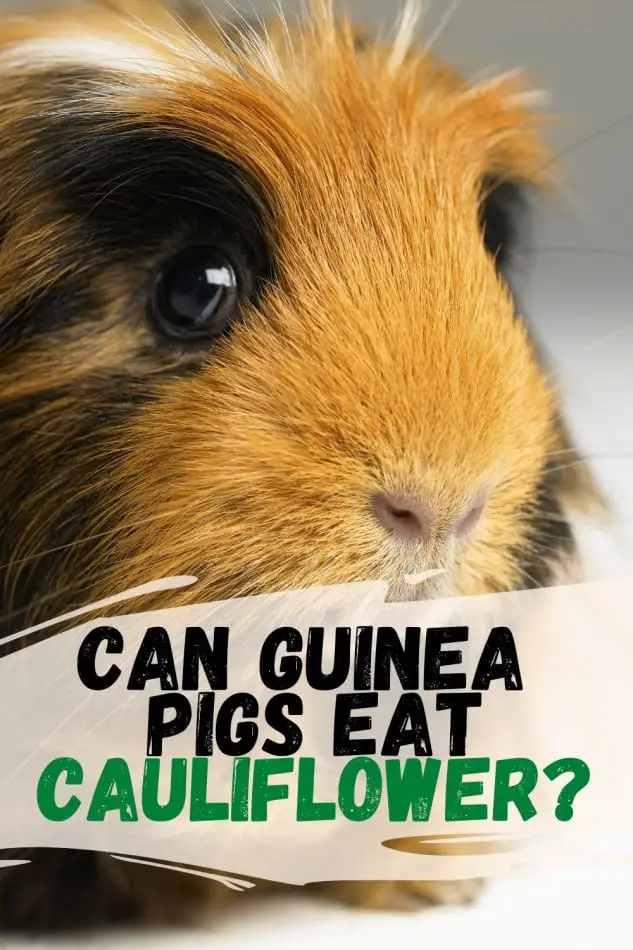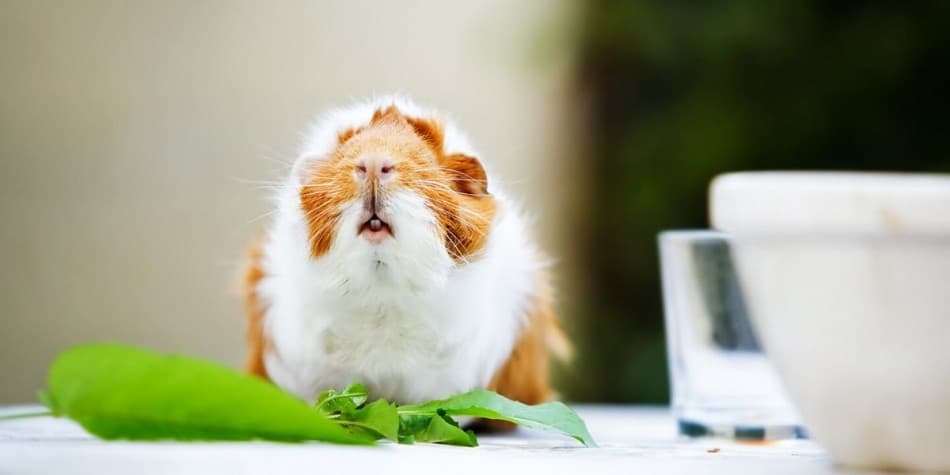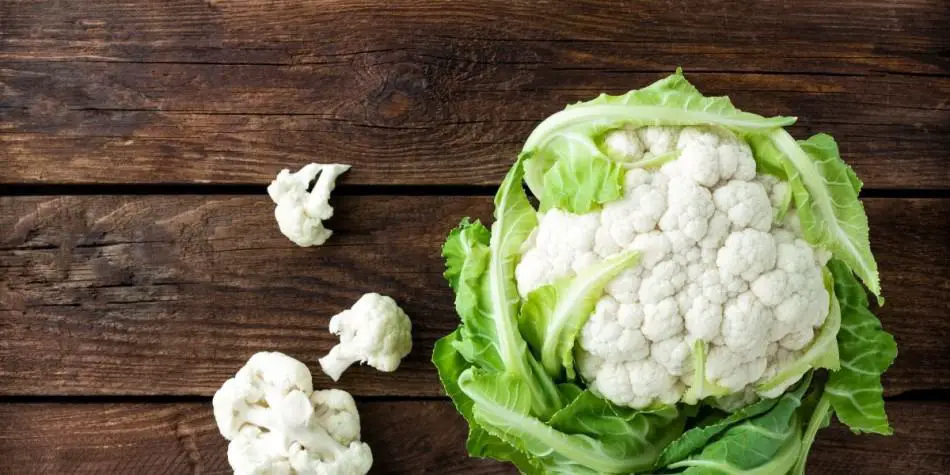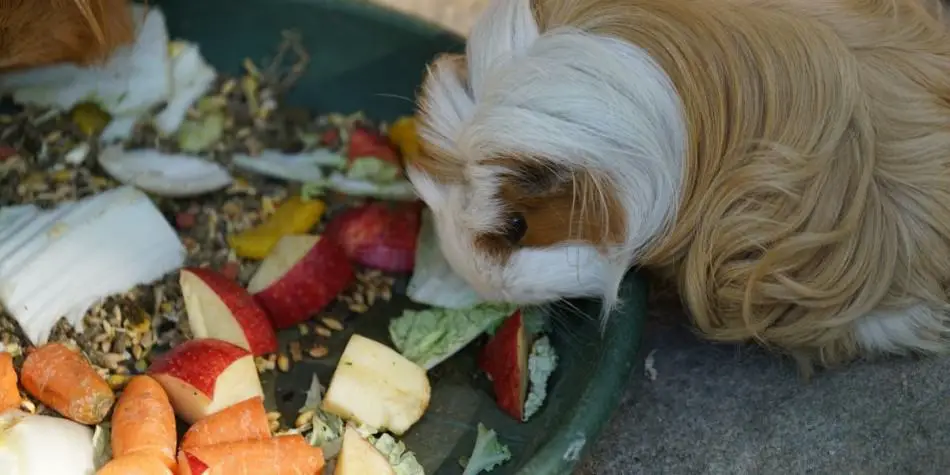Guinea pigs are herbivorous animals, so it may seem simple to feed them safely. But in reality, not all vegetables, herbs and fruit are suitable for these cute animals. Before testing any food that you have never given to your guinea pig, it is always better to ask yourself if it can be harmful to its health. Cauliflower, the great protagonist of traditional recipes, is a very nutritious vegetable for humans. But Can Guinea Pigs Eat Cauliflower?
The answer is YES, but with some precautions. Let’s find out more about this fact below.
A Guinea pig can eat cauliflower but in moderation. This is one of the vegetables that can give gas to our little animal (a bit like it happens with broccoli and Brussels sprouts), therefore it should be given as a snack, only once or twice a week.
When serving some cauliflower to the guinea pig, make sure to combine it with some other vegetable that does not swell your pet’s stomach. This will ensure that it has a more balanced meal and the negative effects of this healthy food are reduced.

Table of Contents
What are the benefits of Guinea Pigs eating cauliflower?
Cauliflower is a food full of health benefits, being made up of 92% water, and 8% vitamin C, proteins, potassium, and fiber. This composition makes it an excellent vegetable for guinea pigs, which will keep your hydrated, strong, and regular.
These vitamins are an excellent aid for the well-being of the eyes, blood, liver, muscles, and immune system of guinea pigs. The fiber also improves the functionality of the intestinal tract and the colon in particular, also helping guinea pigs with weight and obesity problems, and helps to restore digestive functions.
Eating cauliflowers is also good for the guinea pig’s oral hygiene by keeping its teeth clean always. The vitamins contained in this vegetable also reduce the risk of cellular aging and the appearance of inflammatory diseases.
The combination of high fiber levels with the normal hay that the animal eats will ensure that your guinea pig is healthy and full. This can also help the guinea pig not to overeat, which could make it obese. Fiber is an important part of the guinea pig’s diet, but sometimes these fiber-rich foods have some negative consequences, such as gas.
If your guinea pig has frequent stomach problems, it is not a good idea to give it cauliflower, not even a piece. This is because, although not very heavy on the stomach, it can cause gas and stomach pain to your pet.
Guinea pigs need between 10 to 30 milligrams of Vitamin C per day which can be obtained from a good selection of staple foods mixed with veggies and fresh fruit. Feed your Guinea Pig food such as Carrots, Broccoli, Spinach, and fruits such as Strawberries, apples.
Can Guinea Pigs eat Cauliflower Leaves?
Yes, they love them and are best fed to your guinea pig raw and uncooked. Why raw cauliflower? Because in its raw form, cauliflower retains more nutrients, particularly Vitamin C, than if you were to cook it.
Raw cauliflower contains more natural vitamins than when cooked which can remove some healthy vitamins and nutrients. We do, however, like to cut up the cauliflower leaves as our Guinea Pigs prefer it. But some will eat them whole and are not bothered if the leaves are cut or still on the stalks.
Guinea pigs can actually eat more foods than you probably think and only a small number of foods should be avoided at all costs.
Just as with anything in life remember to feed your Guinea Pig foods in moderation. Guinea pigs eat anything and don’t often know when to stop!
Things to keep in mind when asking the question ‘Can guinea pigs eat cauliflower?’
Of course, guinea pigs can eat cauliflower as we have said, but their diet must be mainly made up of feed and hay. Fruits and vegetables should appear at around 15% of their diet, make sure they are given as a snack, no more.

Raw Cauliflower Nutrient Facts
Cauliflowers are highly nutritious veggies that are suitable for a number of small pets as part of their diet. It contains a high amount of Vitamin C. Other necessary constituents are phytonutrients like sulfur and flavonoid. There’s also a small amount of fiber in raw cauliflower.
With no cholesterol at all, it’s perfect for keeping your Guinea pig free from obesity and indigestion and also keeping the heart relatively safe.
Cauliflower contains Vitamins such as:
- Vitamin B1 (Thiamine)
- Vitamin B2 (Riboflavin)
- Vitamins B3 (Niacin)
- Vitamin B5 (Pantothenic acid)
- Vitamin B6
- Vitamin B9 (Folate)
- Vitamin C (This is the major constituent of cauliflower, beneficial for preventing diseases in your guinea pigs)
- Vitamin E
- Vitamin K
- Cauliflower also contains other essential minerals like calcium and more:
Other nutrients are:
- Iron
- Magnesium
- Manganese
- Phosphorus
- Potassium
- Sodium
- Zinc
Can Guinea Pigs eat Cauliflower Florets and other parts?
Can guinea pigs eat the leaves of cauliflower as well as the cauliflower floret itself? Although you might be thinking that only the actual cauliflower itself can be given to guinea pigs, the flowers, leaves, and stems are also edible!
Guinea Pigs can eat every part of cauliflower without problems; from the flowers to the stems, and even the leaves; they are all parts rich in fiber and are suitable for guinea pigs.
You can give your guinea pig each and every part of a cauliflower plant. However, your guinea pig may not eat everything. This should not bother you; guinea pigs are like people; everyone has their individual tastes as well as preferences. If your guinea pig only likes one specific part of cauliflower and not others e.g. the leaves; this should not worry you.

Is cauliflower safe for your guinea pig every day?
Do not forget that you need to give your guinea pig different vegetables, you do not need to limit them to only one type. For example, today you can give your guinea pig cauliflower, tomorrow apples, and carrots, the day after lettuce and a little dill, etc.
If you give guinea pigs the same vegetables every single day, it can limit the nutrients and vitamins contained in their diet. Fiber and vitamins found in cauliflower, make an excellent choice for adding to your favorite guinea pig’s diet. Food for Guinea pigs should contain not only cauliflower but a variety of other veggies that guinea pigs like to eat and foods that contain plenty of vitamins.
If you decide on adding cauliflower to your guinea pig’s diet, always monitor the guinea pig’s weight in addition to any changes that might emerge in its health during this period.
How can cauliflower be given to guinea pigs?
Due to its negative aspect of causing gas, it is better to introduce cauliflower into your pet’s diet slowly and gradually. Always start with a very small amount and see how it reacts. If the guinea pig seems to be doing well, then you can increase the quantity slightly, but you should always continue giving cauliflower moderately, mixing it with other good vegetables once or twice a week.
If your guinea pig reacts negatively, you should eliminate cauliflower from its diet. A swollen stomach in Guinea pigs could be extremely dangerous; it could have severe pain, become constipated, and have other health problems.
In some extreme cases, it could even be fatal. If you notice that the gas has not reduced after 4 hours, your pet rolls itself up in a ball, the belly becomes hard to touch, then you must take it to the vet for a more comprehensive checkup.
When you give your guinea pig cauliflower, be sure to also give it other vegetables that do not cause gas and swelling. You can add papaya, green peppers, raspberries; these are vegetables and fruits that usually do not cause gas.
Guinea Pigs food should contain a good variety of vegetables; however, you should give no more than one cup (about 150 grams) every day. All vegetables must be cut into small pieces so that the guinea pig can easily chew them.
In the case of newborn guinea pigs, wait at least 12 weeks before slowly introducing vegetables into their diet, and do so one vegetable at a time. This makes sure that each vegetable does not create digestion problems for your guinea pig, keep an eye on it for the hours following the meal.
Here’s a list of food Guinea Pigs should and shouldn’t eat. The ‘Safe Greens’ list shows the veggies which are a superb source of vitamins and minerals beneficial to your pet. The ‘Unsafe Greens’ list contain veggies that you should avoid giving to your pet.
Safe greens
- Asparagus
- Basil
- Broccoli
- Brussel Sprouts
- Cabbage
- Carrots and carrot tops (as a rare treat – they are high in sugar)
- Cauliflower leaves and stalks
- Celery
- Chicory
- Coriander
- Courgette/Zucchini
- Cucumber
- Dandelion (only small amounts – it can make them go to the toilet more often)
- Dill
- Kale
- Parsley
- Parsnip
- Radish
- Red cabbage
- Romaine lettuce
- Rocket
- Salad peppers
- Savoy cabbage
- Spinach
- Turnips
- Tomato
- Watercress
Unsafe Greens – Avoid feeding these to your Guinea Pig
- Potato and potato tops
- Rhubarb (including the leaves)
- Tomato leaves
Conclusion: Can guinea pigs eat cauliflower?
After all the facts that we have researched, it’s clear that we have answered the question ‘Can guinea pigs eat cauliflower?’ and hopefully now you’ll feel happier and safer letting your Guinea Pigs eat cauliflower.
Guinea pigs can eat a wide range of foods but always feed them as part of their staple diet and not their only diet.
Always try to feed your Guinea pigs treats that are not full of sugar but also contains vitamin c or other natural and essential vitamins.
Guinea pigs should eat the best diet we can possibly feed them which also contains healthy supplements. Guinea pigs enjoy the same type of foods that we should all be eating: Healthy and nutritional foods.




